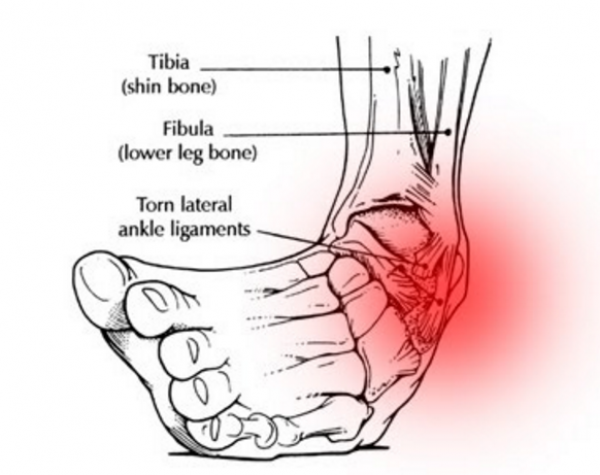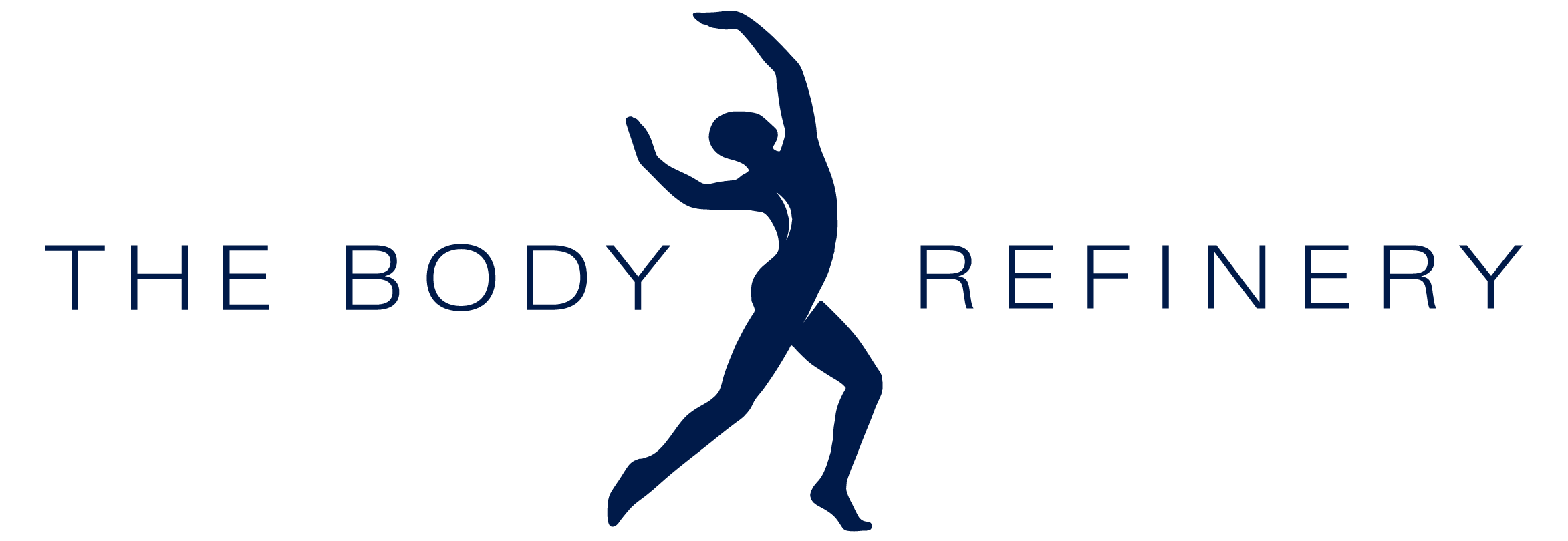Ankle injuries are very common and can result in a “problem ankle” if not treated correctly during the early stages of injury. Ankle sprains are the most common acute sporting injury and account for 14% of all sporting-related injuries.
The most common type of ankle sprain is caused when the foot rolls in and the toes get caught under the foot. This type of “inversion” injury tears the anterior talofibular ligament (ATFL) and sometimes the calcaneofibular CFL) and posterior talofibular ligaments (PTFL).
How did it happen?
It’s important to remember what the mechanism is when ankle injuries occur, as it can assist your Physiotherapist in identifying which structures in the ankle may be injured. If the foot rolls in, the lateral ligaments such as the ATFL, CFL, and PTFL can be injured. If the foot rolls out in an “eversion” injury, the medial ligaments on the inside of the ankle, such as the deltoid ligament, could be injured. If the entire joint is compressed strongly there could be an injury to the bone and cartilage of the joint surfaces in the ankle.

What happened right after ankle injuries?
If it is difficult to put weight on the ankle initially and it gets more swollen and painful as time progresses, it is likely to be a sprain. However, if no weight can be placed on the ankle at all, or if there is a visible deformity, there may be a fracture.
Ignoring the injury and continuing to run or play sport on it right after the injury can lead to a longer rehabilitation time.
Initial management should include: R.I.C.E.
R – Rest the injury, using crutches to take the weight off it, or a brace/boot prescribed by a Physiotherapist.
I – Ice can help reduce pain and inflammation during the early stages of an injury, which can speed up recovery.
C – Compression of the area will help reduce swelling caused by an influx of fluid or blood from injured ligaments. Reducing the waste products and fluid in the area can help with recovery.
E – Elevating the injured ankle will also aid in reducing swelling in the area, which may have associated pain from compression of nerves and tissue.
What can a Physiotherapist do to help?
The Body Refinery’s Physiotherapists are highly qualified to assess and treat ankle injuries. We understand that the successful management of ankle injuries is an import for good long-term ankle function. Additionally, our Physiotherapists undertake a thorough biomechanical analysis of the affected lower limb to determine any underlying issues which may be predisposing the individual to injuries.

The goals of Physiotherapy include:
– Diagnosing the structures that are injured.
– Performing soft-tissue massage, as needed, to reduce pain and swelling.
– Using taping techniques to provide support to the injured area.
– Dry needling, as indicated, for tissue healing and pain relief.
– Early prescription of balance, proprioceptive, range-of-motion, and strengthening exercises.
– Manual therapy to improve range of motion.
Essentially, exercise therapy should be individualized and patient-centred, taking into account factors such as patient age, mobility, co-morbidities and preferences. An assessment of specific impairments such as strength, range of motion, and balance is needed to determine the most appropriate exercise regime.
At the Body Refinery, once any manual therapy has been carried out to aid ankle mobility and or reduce painful impingements, our Physiotherapists use a progressive individualised treatment program to correct any aberrant movement patterns, instability or poor mechanics that overload the ankle or adjacent areas. Clinical Pilates is an excellent form of exercise for complete ankle rehabilitation, as Pilates is a progressive form of exercise that can be individualised and progressed to suit the individual’s rehabilitation needs. As an exercise form, Pilates focuses on alignment and function of the lower limbs in relation to the trunk and trains the patient in a functional manner.
_ _ _
Our Physiotherapists are all trained clinical Pilates instructors, making The Body Refinery the perfect environment for clients to progress from acute pain to functional pain-free movement, and back to peak performance.
Book a session with one of The Body Refinery physiotherapists today on 07 3358 3915 or at info@thebodyrefinery.com.au.
Follow us on Facebook, Instagram and Twitter for a daily dose of Pilates and Wellbeing.


